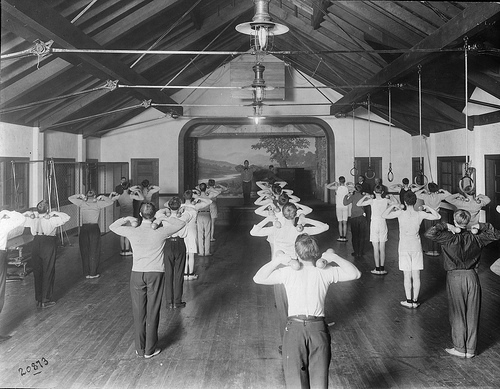
The most important thing any of us can do to look after our brain is to ensure we do sufficient exercise. The physical sort that involves getting your heart rate up and makes you a bit puffed.
Beyond all the healthy food we eat to nourish our brain and all the training we undertake to keep our brain functions polished up, it is exercising our body that has been shown in countless research papers to be the essential brain builder.
The trouble is that for too many of us, our sedentary lifestyle means we are simply not getting the exercise we need.
Simon Sinek in his excellent TED talk explains it is knowing WHY that makes the biggest difference to our behaviour. So WHY is physical exercise so important for brains?
When I ask workshop participants what they think the reason might be. They will often suggest it is because exercise stimulates greater blood flow and more oxygen being carried to the brain. Which would appear to be good for greater brain function. However this is only part of the story.
When we exercise, we release higher amounts of a substance called brain derived neurotrophic factor (BDNF for short). BDNF is very important for neuron maintenance and strengthening synaptic connections. In other words it is very helpful for memory. It is also involved in neurogenesis – the production of new neurons and supports their survival, maturation and incorporation into our existing neural circuitry.
Exercise helps to reduce levels of stress hormones, elevate mood and is associated with the release of endorphins our feel good chemicals.
I remember finishing a session at a local gym and being persuaded prior to leaving, to sign up to a further 12 months membership! I realized afterwards it was my happy endorphin related euphoria, which made me commit!
Have you ever noticed that you “feel” good after exercise? Being in a positive mood of course is associated with higher performance, which explains why doing some exercise before you go to work means you are more likely to get more out of your day and achieve more.
John Ratey in his book Spark has shown that kids who exercise either by running or walking around the school oval before taking a test or exam achieve higher test marks compared to those that don’t.
Happily you can get the full benefit of the BDNF and endorphin boost in a relatively short time frame which is good news for those trying to schedule in their exercise routine for the morning. Twenty minutes on a daily basis will set you up to ensure the rest of your day goes well.
The main thing of course is to actually get out there and do it. My good friend David Beard exercise physiologist, who not surprisingly is extremely fit has a few tips that he shares to help us mere mortals find our way to the gym or the pool or walking track when necessary, especially on those days when it is a bit cold or dark or raining and we feel like staying snuggled under the warmth of our doona for a little longer instead.
- Put your trainers by the front door and lay out your exercise gear ready to put on, before you go to bed.
- Tell your husband/wife/partner/child/neighbor/dog that you will be going exercising early in the morning – better still get them to come along with you. There’s nothing like a bit of accountability to make things happen.
- Track your exercises and record your progress. This is a bit like the “star charts” we used to use for our children to reward good behaviour or piano practice being completed. It works on grown ups as well, though you might want to use a different reward other than shiny gold stars.
- Start small. There are no prizes for trying to do too much too quickly and running the risk of injury, especially if you are starting from zero. If you are over forty please have a check up with your GP first to ensure you are fit enough to undertake the physical routine you have chosen to undertake. If this means starting with a five to ten minute walk three times a week then that is fine. It is easy once you have started safely to build steadily from there.
Remember, new habits require new neural circuitry to be created and it is the repetition that embeds the habit. Once acquired, your brain will continue to benefit from the higher levels of BDNF and endorphins being regularly produced, and people will start noticing. Not only will they notice you seem fitter and more alert, they will notice you are smiling a lot more and that you seem happier too.
Not bad for twenty minutes of your time every day.
Are you giving your brain the exercise it needs?
Photo credit: compfight


